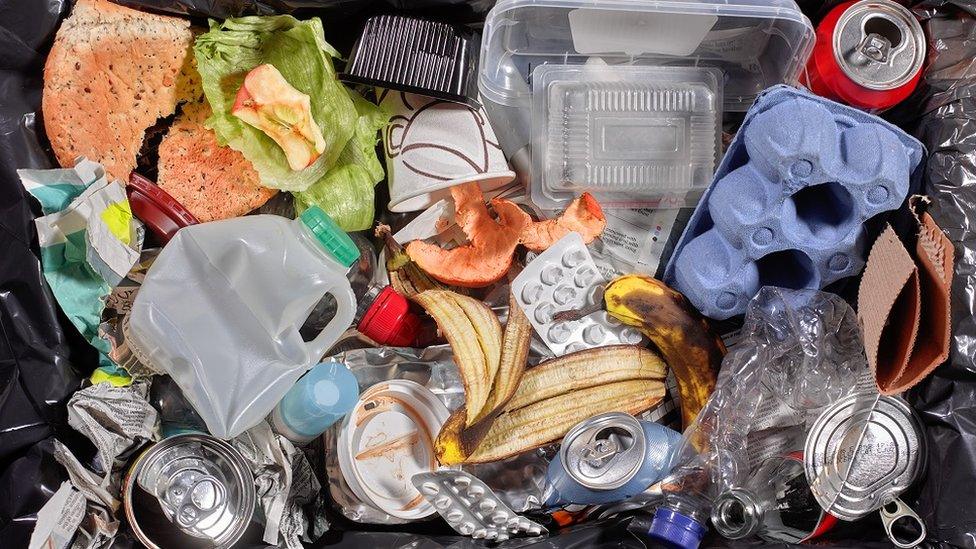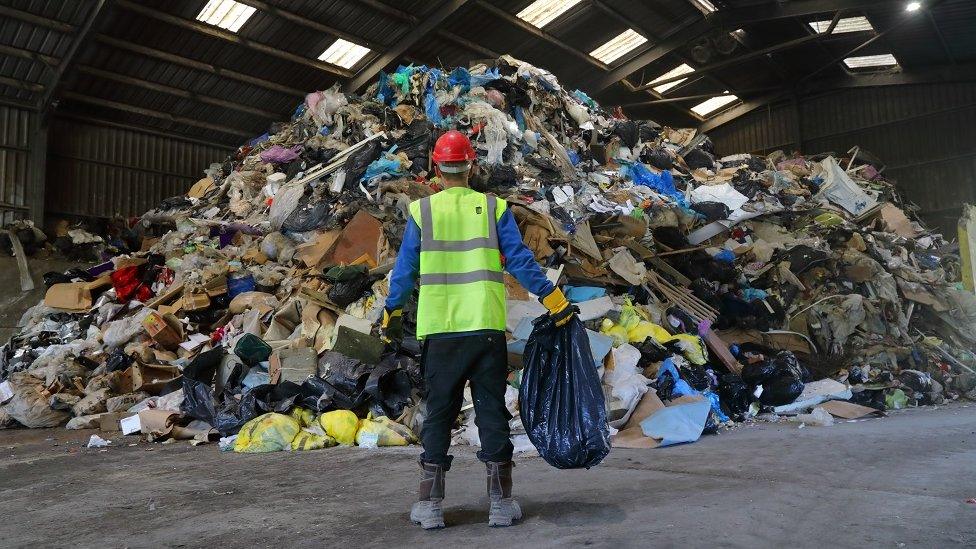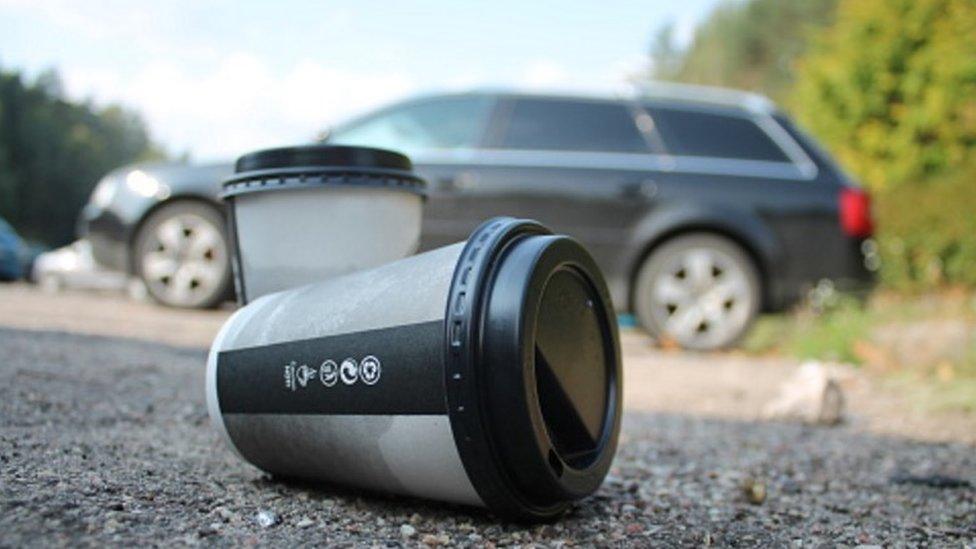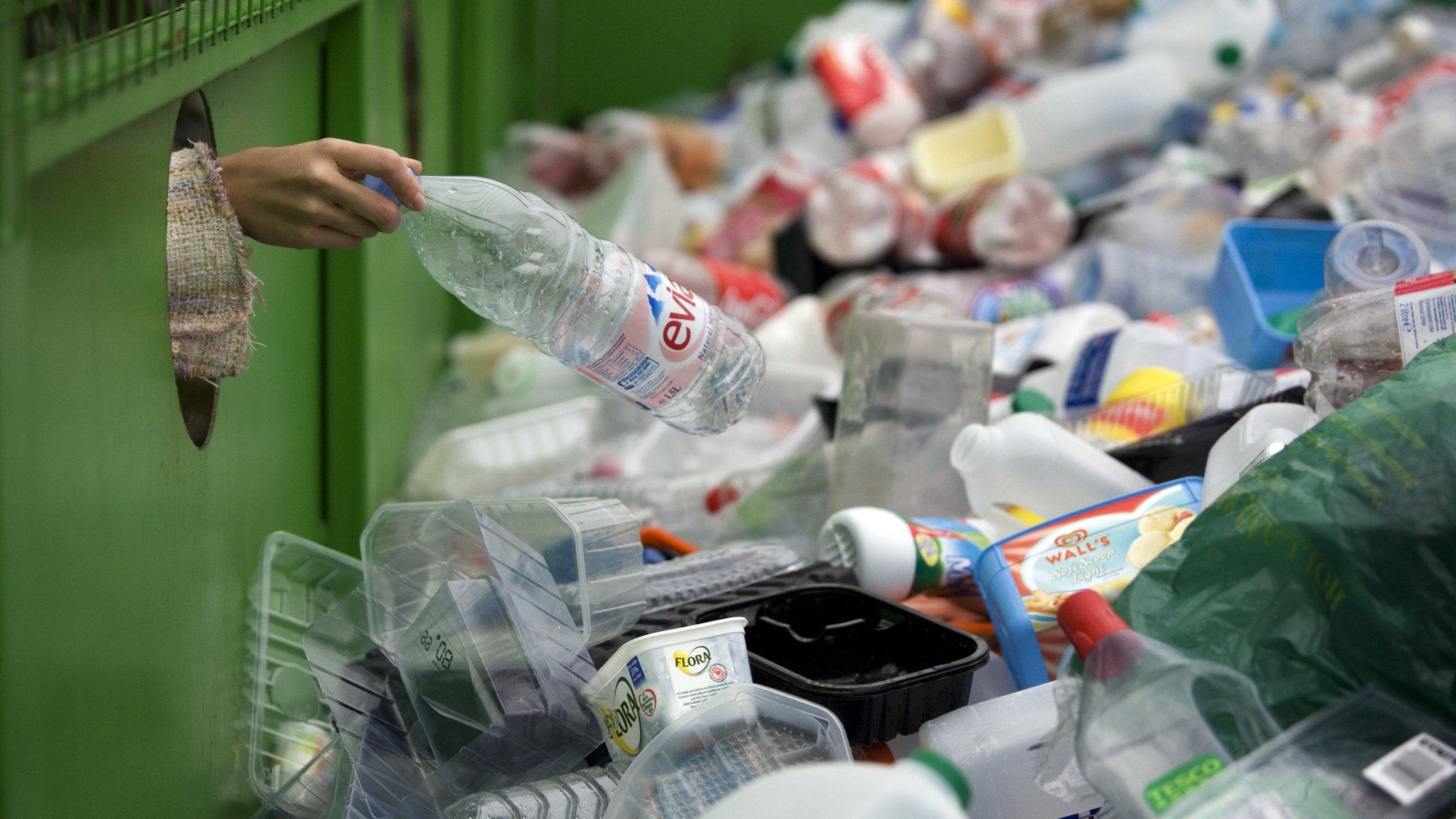Spike in Scotland's waste during first lockdown
- Published

Zero Waste Scotland urged Scots to think about the planet
There was a spike in household waste during the first year of the pandemic, according to a new report.
The Carbon Metric report suggested that waste from Scottish households grew by 3.2% in 2020.
Zero Waste Scotland said people had to think carefully about what they were consuming and how it would impact the planet.
The Scottish government said it was establishing initiatives to help tackle Scotland's throw-away culture.
The amount of waste in Scottish households grew by 3.2% in 2020, rising from 5.66 million tonnes CO2 equivalent, to 5.84 million tonnes CO2 equivalent, according to Zero Waste Scotland.
Its report, which it carried out in collaboration with the Scottish government, measured the impact of waste by its weight, as well as the "whole life" carbon impacts of items, the resources needed, emissions produced in manufacturing and waste management.

'No time to waste'
The Zero Waste Scotland report revealed that textiles made up 4% of waste by weight, almost a third (32%) of Scotland's carbon impact.
The top five most carbon-intensive materials that are thrown out in Scotland include paper, cardboard, plastic, textile, metal, animal and food waste. These accounted for just under half (46%) of all household waste tonnage in 2020 but made up 83% of the carbon impacts.
The report also noted an increase in people's average carbon footprint due to online shopping during the pandemic.
Iain Gulland, chief executive of Zero Waste Scotland, said: "The first year of the pandemic saw us all having to change our way of living almost overnight - this a rise in online shopping, which of course resulted in a spike in household waste.
"Every person in Scotland is responsible for 18.4 tonnes of materials every year and it is these products and materials which make up around 80% of Scotland's carbon footprint.
"If we are serious about ending our contribution to the climate crisis, we must live within our means and reduce our consumption in the first place - there is no time to waste."
'Economic opportunities in re-use'
The Scottish government is taking action to help reduce waste and pollution in Scotland.
Lorna Slater, circular economy minister, said funding was in place to "support initiatives that could help Scotland tackle textile pollution and throw-away culture".
She added: "Every material that is wasted comes at a cost to our planet, but it's clear that textiles are having a disproportionate impact.
"We want Scotland to have an economy where materials remain in use for as long as possible. This won't just reduce Scotland's carbon footprint, it will also provide economic opportunities in re-use and remanufacturing."
Ms Slater said plans were being prepared for "an ambitious Circular Economy Bill" that would be published for consultation in due course.

How do we slow down fast fashion?
The clothes we wear can have a huge impact on the climate, even more so than the aviation industry.
Related topics
- Published21 August 2017

- Published15 December 2021
